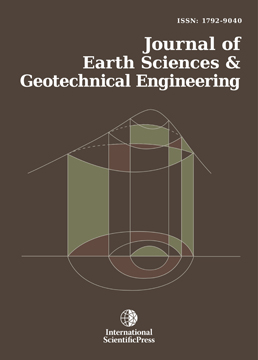Journal of Earth Sciences and Geotechnical Engineering
Hydrogeophysical Evaluation of Groundwater Resources within some parts of Northern Anambra Basin, Nigeria
-
 [ Download ]
[ Download ]
- Times downloaded: 10260
Abstract
Hydrogeophysical investigation of groundwater in parts of Northern Anambra Basin has been evaluated with a view of delineating the groundwater potentials and aquifer characteristics within the study area. Twenty-(20) vertical electrical soundings (VES) were acquired with a maximum half current electrode spacing of 150 metres using ABEM 4000 SAS Tetrameter. Eight out of the 10 VES were made within the vicinity of existing boreholes for correlation purposes. Computer iterative modeling using 1D interpex resistivity software was applied in the VES data analysis and processing. Results from the modeled interpretation revealed the presence of five to seven geo-electric layers with an average of six layers. The depth to water table in the study area varies between 20m and 151.1m and the aquifer thickness was revealed to be highest in Ogene, Abocho and Egume areas. The depth to Watertable is deepest around Ogene area with depth of 190.7m. Hydraulic conductivity ranges between 0.0001m/day and 4.15m/day. The result of the geophysical analysis correlates well with the borehole data acquired from the study area, this shows high degree of confidence in the geophysical model adopted. The results correlated with borehole logs within the VES locations show positive relationships. It is recommended that an average depth of 75m should be drilled for borehole within the northern part of the studied area and a depth of about 100m in the southern part of the study area. All these deductions were reached after qualitative and quantitative interpretation of the geophysical data, and considering geology of the area.
Keywords: Groundwater, Geoelectric section, Aquifer parameter, Correlation and Hydraulic conductivity
